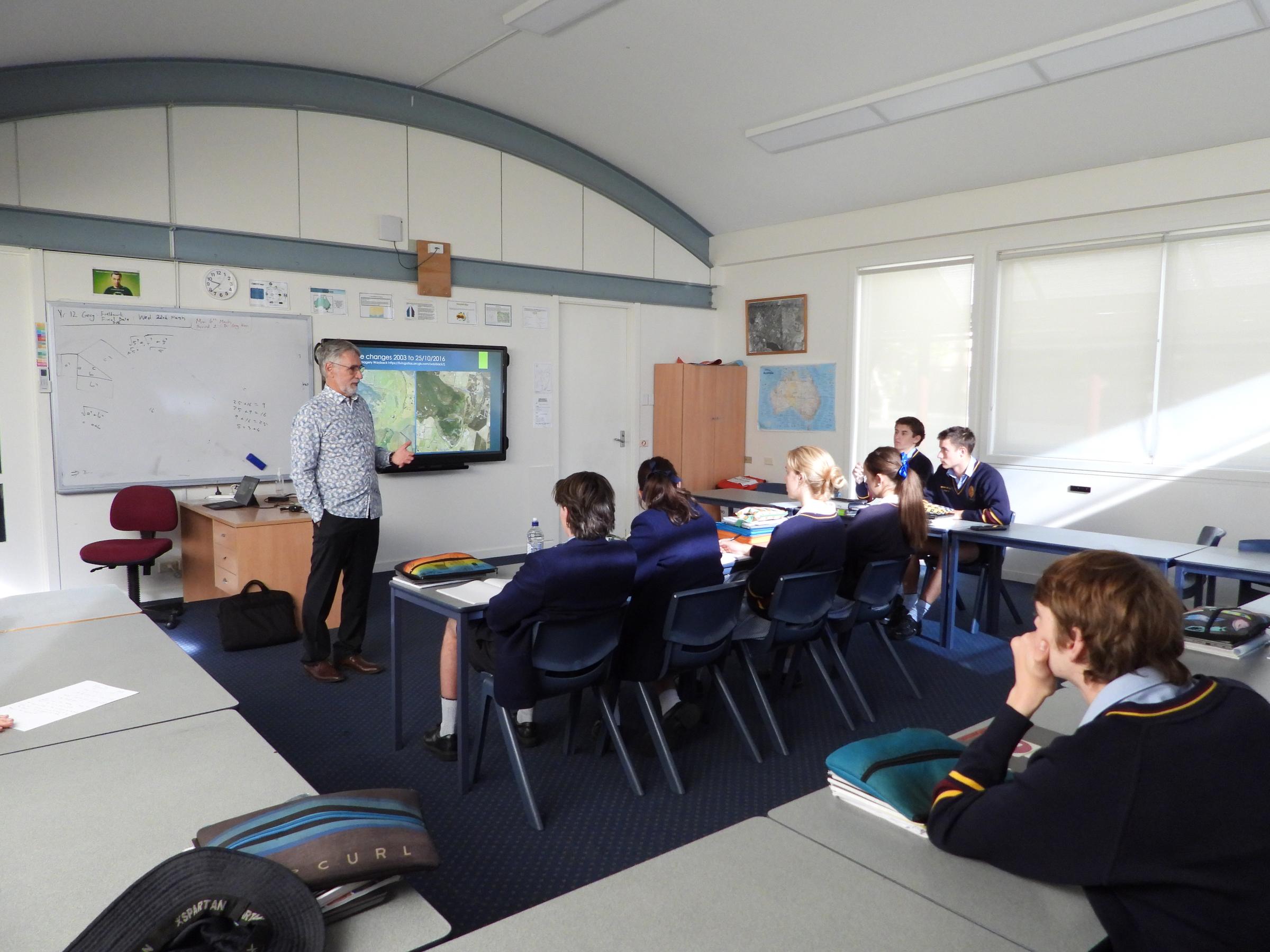Deputy Principal, Teaching and Learning

Honesty, trust, fairness, respect and responsibility
Image Source: How researchers will evolve with Chat GPT | Al Arabiya English
Academic integrity is: ‘the expectation that teachers, students, researchers and all members of the academic community act with honesty, trust, fairness, respect and responsibility.’ Breaching academic integrity is also known as ‘academic misconduct’ or ‘academic dishonesty’.
At The Hamilton and Alexandra College, we have a policy in place to ensure that we are working with our students and supporting them on their learning journey. This policy is designed to understand the motivations behind a poor choice and provides opportunity for reflection and re-submission of work.
Our students studying a VCE subject have an additional set of processes if their academic integrity is called into question and our Head of VCE Studies Mrs Bonnett will work with the VCAA guidelines to support students.
We know and value our students and want them to work in a way that builds their academic muscle and their personal character of integrity. So, we are committed to calling out behaviour that is unacceptable, but we do so with care and concern for the students involved.
We consider a breach of our Academic Integrity policy to be:
- Cheating includes any action taken that might give a student an unfair advantage or bringing unauthorised materials/resources into the exam or assessment.
- Plagiarism includes direct copying of material (Sentences/paragraphs) from other sources without clearly citing the origins. It includes paraphrasing material without acknowledgment, using the ideas or research of another person and submitting work that has been completed by another person or in conjunction with another person (Peer, parent, or tutor). Individuals and groups who work together on a project may be held accountable for plagiarism.
In light of the rapid advances in AI, the College acknowledges the access students have to using CHAT GPT and the like to do the hard work for them. We realise that in some instances AI might provide students with a scaffold or inspiration for a work task. If this is the case students need to acknowledge this in their work, including the specific search terms they have used. Our teachers are using Chat GPT to show students how to and how not to write, and ways that the output is sometimes limited and inaccurate. But it is important that our staff, parents, and students know that the use of CHAT GPT to directly produce work for school assessed coursework and assessments is in breach of our Academic Integrity Policy.
We have set clear classroom expectations for the use of AI at the College, and this will be a talking point with students at our upcoming assembly and mentor meetings. At present students above 13 years can only use Chat GPT with written parental approval. There remain issues of privacy and copyright when Chat GPT is used, and the broader education sector continues to wrestle with how we use and adapt to a world with AI.
We welcome you to join our ongoing discussion of AI and education. The world is changing, and we are walking together, students, teachers and parents, as we partner for the education of the next generation.
Susan Bradbeer
Deputy Principal Teaching and Learning
Some FAQS: (Source from quill.org)
AI (Artificial Intelligence) is the simulation of human intelligence by machines.
AI is a field of computer science focused on building very advanced machines that perform tasks associated with human intelligence. Scientists use large datasets to “train” algorithms to make better and better predictions, like predicting the next word, phrase, sentence, or even paragraph of a text. The field is advancing rapidly.
AI takes many forms and is becoming more ubiquitous.
Many companies leverage AI today to perform basic— and increasingly more complex— tasks. For example, when you chat with a customer service help desk, or call to schedule an appointment, you are likely interacting with AI. AI also powers many search engines that generate personalized recommendations. It can even help to power many homes and cars!
ChatGPT is an AI chatbot recently launched to the public and is currently free.
In December, a company called OpenAI unveiled a tool called ChatGPT. Today, anyone, including students, can sign up for free and start interacting with it through prompts or questions. ChatGPT runs on an algorithm that was trained by input from the whole Internet. It can write business plans, essays, and even working lines of computer code, all in seconds.
Students may use ChatGPT to write essays for them— in ways difficult for teachers to detect.
ChatGPT’s release has sparked a national conversation about the promise and harms of AI in society. In K-12 education, one immediate threat is that students can use it to generate essays and written responses. They do this by prompting the chatbot, and then copying/pasting the response to submit as their own. These responses are free of grammatical errors, and in our analysis, would frequently receive As and Bs, especially at the middle school level.
Teaching and Learning Important Notes
- NAPLAN Starts in Week 7 for years 3,5,7 and 9
- Elevate Education Free Parent Webinar: Technology and Focus: Using technology and beating distractions 15/3/23 @ 6.30pm
Click here to register for free
- ✅Technology addiction and how to reduce technology dependence
- ✅Practical strategies and apps to minimise procrastination
- ✅How to help your child use technology productively to enhance their learning
- Assessment and Reporting: Continuous Reporting Pilot program continues.
- Term 1 Reports generated for Parents: Thursday 23 March 2023
- Elevate Education Study Skills for year 10-12 Friday 24th March 2023
- Student Parent Teacher Interviews (online) Wednesday 29th March 2023
Susan Bradbeer
Deputy Principal, Teaching and Learning

